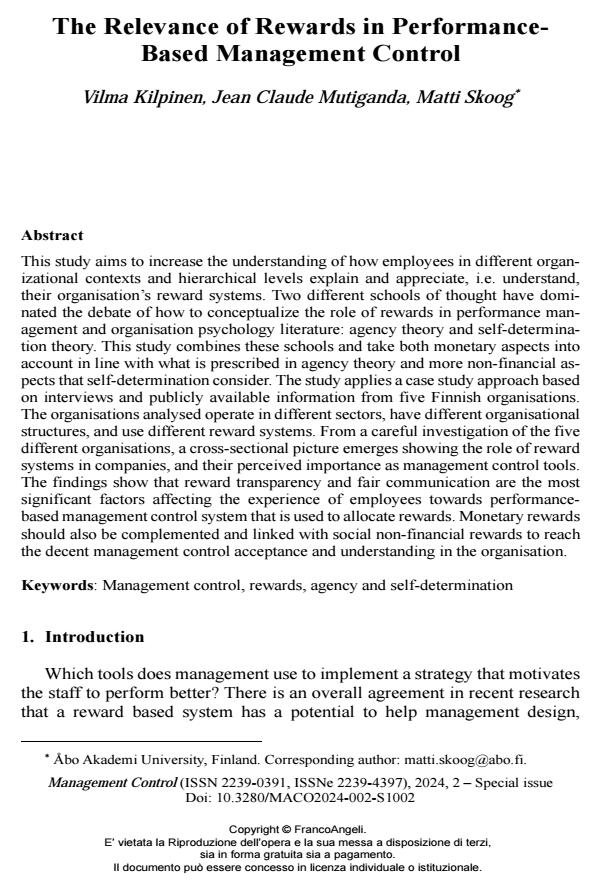The Relevance of Rewards in Performance- Based Management Control
Journal title MANAGEMENT CONTROL
Author/s Vilma Kilpinen, Jean Claude Mutiganda, Matti Skoog
Publishing Year 2024 Issue 2024/2 Suppl.
Language English Pages 13 P. 15-27 File size 185 KB
DOI 10.3280/MACO2024-002-S1002
DOI is like a bar code for intellectual property: to have more infomation
click here

FrancoAngeli is member of Publishers International Linking Association, Inc (PILA), a not-for-profit association which run the CrossRef service enabling links to and from online scholarly content.
This study aims to increase the understanding of how employees in different or-ganizational contexts and hierarchical levels explain and appreciate, i.e. under-stand, their organisation’s reward systems. Two different schools of thought have dominated the debate of how to conceptualize the role of rewards in performance management and organisation psychology literature: agency theory and self-determination theory. This study combines these schools and take both monetary aspects into account in line with what is prescribed in agency theory and more non-financial aspects that self-determination consider. The study applies a case study approach based on interviews and publicly available information from five Finnish organisations. The organisations analysed operate in different sectors, have different organisational structures, and use different reward systems. From a careful investigation of the five different organisations, a cross-sectional picture emerges showing the role of reward systems in companies, and their perceived importance as management control tools. The findings show that reward transpar-ency and fair communication are the most significant factors affecting the experi-ence of employees towards performance-based management control system that is used to allocate rewards. Monetary rewards should also be complemented and linked with social non-financial rewards to reach the decent management control acceptance and understanding in the organisation.
Keywords: Management control, rewards, agency and self-determination
Vilma Kilpinen, Jean Claude Mutiganda, Matti Skoog, The Relevance of Rewards in Performance- Based Management Control in "MANAGEMENT CONTROL" 2 Suppl./2024, pp 15-27, DOI: 10.3280/MACO2024-002-S1002